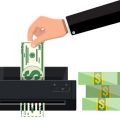Bears, Bulls and Black Swans
 I’m not exactly sure how I would characterize the most recent stock market activity. Nerve-wracking? Perplexing? Humbling? Inexplicable?
I’m not exactly sure how I would characterize the most recent stock market activity. Nerve-wracking? Perplexing? Humbling? Inexplicable?
It seems strangely odd that the market has shot upwards amidst one of the worst downturns in economic activity in recorded history with record unemployment. Buy hey, what do I know?
Now I’ll preface this article with the fact that I’m not a financial advisor, and this is not intended to be individual financial advice. These musings are simply my thoughts and curiosities – hopeful to learn from others insights and opinions on the current market situation. I believe it’s always a good idea to get multiple perspectives when investing your money, others will see things that you don’t necessarily see or look for. They may question your judgement in certain cases or point out biases you have that you may be ignoring.
So what’s happening currently in the market appears to be a black swan event (or multiple black swan events you could argue) something characterized by unpredictable or unprecedented events or activities. We have the coronavirus, which I’m sure nobody expected or predicted would send the entire world into lock down for months, possibly longer. Then we had a price war on oil, causing the commodity values to plummet. Then even further damage to prices were seen with an unprecedented disparity between supply and demand. Supply increased from additional production due to the price war, while at the same time demand cratered with nobody driving and most commercial air traffic evaporating almost overnight.
What does this mean for the markets and your investments? Anyone invested in the stock market will have likely noticed a large hit to their portfolio near the end of February and a further steep decline shortly after. It was pretty much sector-wide and unavoidable. Comparable in some respects to the stock market crashes of 2007-08 and 1987. While the steep drops are similar, the reasons very different and this is where opinions on a recovery seem to diverge.
The Opportunity of a Lifetime?

To me I’m in the moderately pessimistic camp in terms of if the current recovery will hold. It makes perfect sense that the market would correct (or crash) in this situation. Many stocks were trading at fundamentally overvalued levels when comparing to their historic multiples. Currently I’ve been divesting of small caps / micro caps I’ve made gains on or have held their value due to low trading volumes and either moved that money into severely hit blue chip dividend payers or kept that harvested money in cash.
My feeling is that these companies will appreciate over a 10 year period, while paying dividends and offset the risks of a further or lengthened downturn. If they fall below the lows again, I will evaluate fundamentals and possibly purchase more with a long-term investment horizon or future dividend income in mind. Some of these stocks have already appreciated a fair amount, but what has me a little guarded is the speed of the recovery so far and begs the question…
Will the Current Market Recovery be Short lived?
As I said, there are some amazing opportunities in the market right now, some stocks chopped down 70-80%, dividend cuts, and into huge oversold territory. I’m both cautious and optimistic as I think there is uncertainty, but equally opportunity for many equities. In some cases institutional money has been forced out for various reasons, such as liquidity or perhaps the fact the equities no longer meet fund criteria such as not paying a dividend, total market cap, trading volumes, etc.. Really though, the recovery of the major benchmarks to this point seems way too quick. Quick and a little too optimistic when considering the slow restart we will likely see to the economy, not only in Canada but south of the border and globally.
It’s also interesting how events like this get people talking about the stock market who normally turn a blind eye to their investments and have handed it over to a money manager. I overheard neighbours the other day discussing very specific stocks and sectors, people who would care less if I started chatting to them about this on any other day. One thing I’ve heard from a number of people is how they’re now worried about missing out on this fast recovery – a big buying opportunity and they better buy now that the market is trending upward again before we’re back at the highs. Classic fear of missing out, and this frankly scares me.
It scares me for those that may have sold off at the lows and jump back in only to lose again. Also those jumping in only to find institutions or others take the rebound as an opportunity to dump more positions in preparation for a longer bear market. Time will tell, but my advice for anyone entering the market now would be to do it slowly, calculated and by deploying your cash over time in order to dollar cost average your positions longer term. You might miss out on some big gains, but more importantly you’ll likely avoid huge loses.
My personal opinion is that we are going to see another downturn, but more sector specific affecting the overall market and bringing us back near the lows already reached. It strikes me as unusual that amidst a total economic shutdown, we still see some individual stocks just roaring ahead. Tech stocks like Shopify, effectively doubling throughout a crisis and being valued higher than giants such as TD Bank and CN Rail sets my alarm bells off.
There is also still boatloads of money in ETF’s, Robo-Advisors and Mutual Fund that I’m sure half the people who own them don’t even know what they own. There is something to be said for owning the market and having a balanced portfolio, but at the same time the markets in recent history seem to be driven more and more by the funds flow to these products.
Is there an ETF Bubble?
This is another question on my mind, it’s 100% without a doubt, more popular for people to be buying index funds now and Investment Funds (or Mutual Funds) indiscriminately without knowing what they’re purchasing nowadays. I suppose many would have done this to a degree in the past using a financial advisor, but it’s so easy to do on your own now I wonder how many just throw their money into a basket. For sure, some folks are more calculated in their purchases of ETF’s with so many available now spanning every sector, but the prevalence of Investment Funds and Robo-Advisors make me wonder how many individuals just flat out have no idea what they actually own.
Dr. Michael Burry of “The Big Short” fame has been calling an ETF Bubble for a while now, citing that price-setting is not being done by fundamental security-level analysis, but by massive capital inflows. I can’t say I disagree with his assessment – is it correct though? Who knows, only time will tell. His contention is essentially that blindly purchasing these indexes causes stocks to become overvalued by traditional metrics, but then investors will continue buying these ETF’s full of overvalued stocks. There are definitely arguments on the other side of the coin from analysts, but many of those I have seen are coming from people who earn their money from selling the very products they’re advocating for.
With all that said, I do own a small amount of ETF’s myself and have owned investment funds in the past. They can be a great way to get market exposure without having to pay a lot of attention or worry about researching individual securities. It does make me a little nervous though at the amount of capital that flows into these funds and the number of people who likely never even look at what they’ve bought, but simply click through a few screens in their online banking or robo advisor allowing you to choose a product based on risk-tolerance and self-assessed investment knowledge. My personal approach with funds like that are to see what is actually owned in the portfolios and figure out how to buy the specific one I want versus having the software guess what I want based on my input of time horizon and risk tolerance levels.
Canada vs. the US Market

David Rosenberg, an Economic Strategist has said recently that we may see the Canadian Dollar as low as $0.60 cents and reduced credit ratings for Canada. It’s hard to argue, with the amount of CERB claims we’ve seen already and the latest unemployment data. Based on his calls, you could make the case that this dip could be a great buying opportunity for US stocks that have been hammered as well. They may end up appreciating both during a recover and in relation to our falling Canadian Dollar.
The entire world economy is in rough shape at the moment, yes… but seeing the things happening in Canada currently is a good reminder to me that it’s important to be diversified geographically with the funds you do have invested and not to be too heavily weighted in a single region. It’s also impossible to time when various markets or indexes will outperform each other, so it’s a solid plan not to be heavy in only the TSX for example.
Strategies Going Forward and Ways to Play it Safe
Some people have lost a lot of money during the recent crash and I think that leads to the lesson that it pays to be well diversified. Not only do I mean with your stock portfolio, but across the board. One of the most important things you can do investing in anything is to conserve your capital. Clearly this is why you don’t invest everything in a single stock, so why take the same approach with your overall financial picture and investment strategies.
In regards to stocks, I’ve taken the opportunity to re-evaluate my positions and as mentioned, try to harvest cash from winners or stocks that have not fallen as badly as the broader markets. While I might miss out on gains, I won’t be losing any of that capital and the way I look at it – I will be well-positioned for any potential further downturn or opportunities that arise. There are many good quality companies out there that will potentially be further dragged down by upcoming earnings reports and the overall economic backdrop.
Importance should be placed on buying quality companies, with little to no debt and solid business fundamentals. Those with fairly steady and predictable earnings with the business not overly affected by recent challenging times. That means don’t go dropping all your money on the cruise operators or airlines hoping for a quick turnaround story. There will undoubtedly be some solid and well run companies thrown out based on panic selling and indiscriminate liquidation – herein lies opportunity for active investors who follow fundamentals and asses based on value. Also, don’t forget to take this opportunity to re-balance your portfolio as you may see some significant changes to weightings based on recent deteriorating share values in some securities.
I haven’t done a net worth statement in quite a long time, but it got me thinking about all the different assets one could own and diversify with. It’s easy to lose all your money when it’s in one place, and more difficult when it’s spread around. The way you allocate your investments will be as you see suitable to your own personal situation. There is something to be said for knowing that your money is safe and secure and not completely tied up in stocks or higher risk investments. You can diversify into things such as savings accounts, GIC’s, personal real estate, income properties and more. The point is, just don’t have all your eggs in one basket.
So what does the rest of 2020 hold for the market? Nobody knows at this point, but it’s always interesting to listen to different theories and the variety of opinions that continually emerge. Let me know in the comments section below what your investment strategy is during this wildly volatile time!
Disclaimer: Talk to a professional advisor before investing or do your own research. This website is for discussion and informational purposes only. These are my opinions, do not base you investment decisions on material found on this website.



